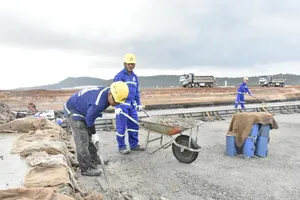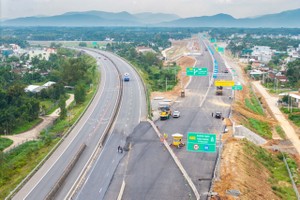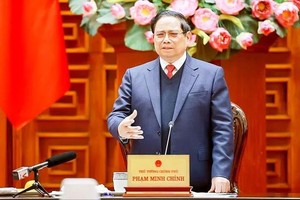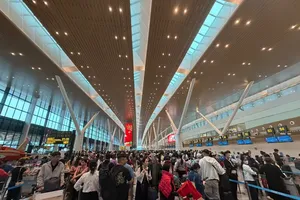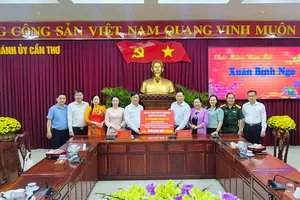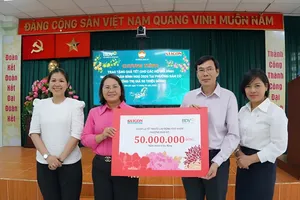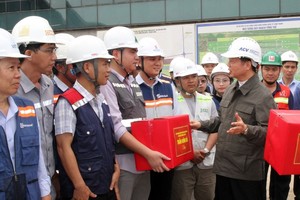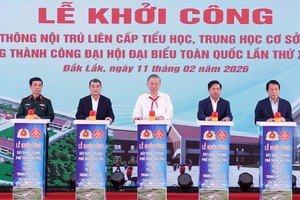
At the formal discussion on “Greening fertilizer manufacturing and chemicals”, organized yesterday by the Ministry of Industry and Trade, Nguyen Thanh Phuong from the ministry's Industrial Safety Techniques and Environment Agency highlighted the government's efforts to assess and prevent pollution from industrial sectors, particularly the chemical industry.
A key focus is on recycling and reusing gypsum waste generated during production processes. The adoption of green technologies in Vietnam is a pivotal solution to fostering sustainable growth and mitigating environmental pollution, with numerous pilot projects currently underway.
The Ministry of Industry and Trade has introduced a comprehensive suite of measures to facilitate the green transition within the industrial and chemical sectors. These initiatives focus on inventorying and assessing waste generation sources, adopting green technologies, and promoting the recycling and repurposing of waste materials, such as gypsum residue, into construction materials.
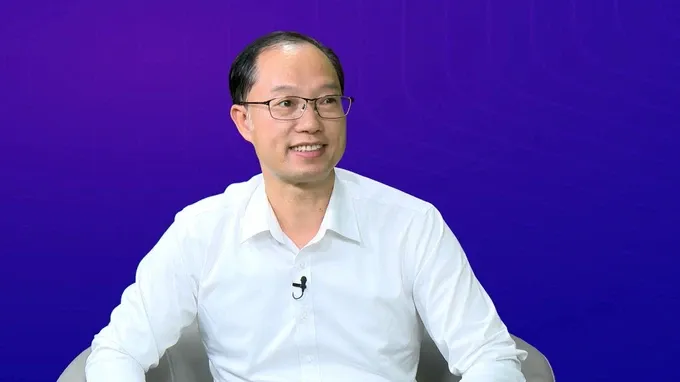
Head of the Technical Department at Vietnam National Chemical Group Phung Ngoc Bo emphasized the importance of eliminating pollution sources and improving environmental management. He noted that this not only benefits the environment, satisfies global waste treatment criteria, improves production performance but also enhances a company's global competitiveness, especially when entering demanding markets like the EU.
However, he acknowledged the significant challenge of high investment costs for green technologies. The initial costs and production costs of green products are often much higher than conventional ones, requiring a substantial time commitment to balance economic and environmental benefits. This underscores the need for greater government support in terms of investment and funding for green projects.

Chairman Phung Ha of the Vietnam Fertilizer Association emphasized the need for the fertilizer industry to focus on reducing losses, improving fertilizer use efficiency, and developing new products such as slow-release fertilizers.
He drew attention to Vietnam's excessive fertilizer use, at 400kg/ha, which is significantly higher than the global average of 135-140kg/ha. This over-application contributes to both economic waste and environmental degradation, particularly by increasing greenhouse gas emissions from the agricultural sector.

He advocated for a shift towards more sustainable practices, including reducing fertilizer inputs and developing high-efficiency fertilizers like organic or new-generation ones to mitigate these negative impacts.
Adding to that, Head Phung Ngoc Bo proposed providing tax incentives and investment funding for green projects. He also suggested reducing VAT on recycled gypsum products to enhance their competitiveness and developing additional technical standards for the treatment and use of gypsum waste in applications beyond cement.
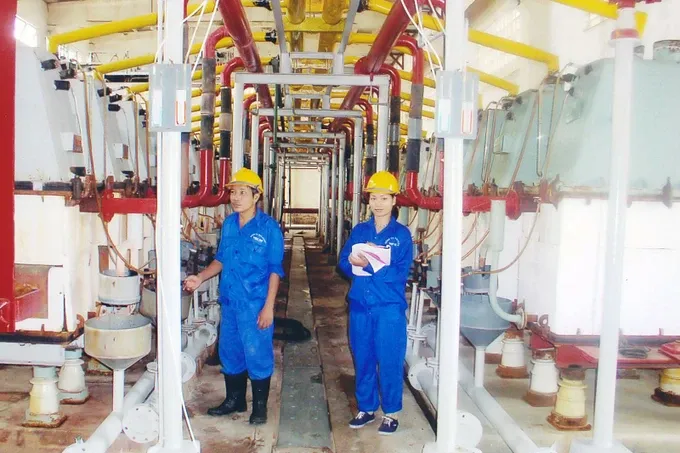
After listening to all recommendations, Nguyen Thanh Phuong announced that the Ministry of Industry and Trade would continue to implement measures to support businesses in greening their production. This includes developing standards for green production, ensuring efficient resource and energy use, and facilitating access to green finance mechanisms such as green credit and green bonds.
The Ministry is also developing a “Green Industry Development Plan to 2030”, aiming at promoting environmentally friendly industries, circular economies, and reducing greenhouse gas emissions. This is a crucial step towards achieving Vietnam's commitment to net-zero emissions by 2050.




